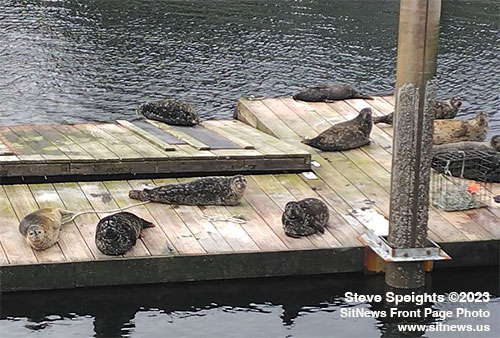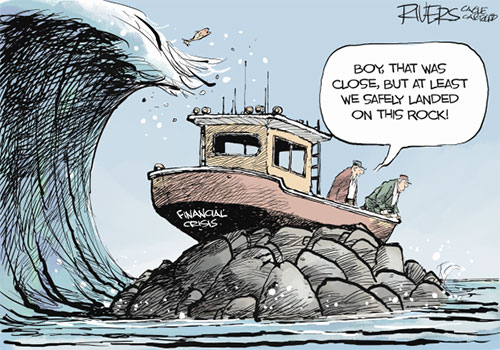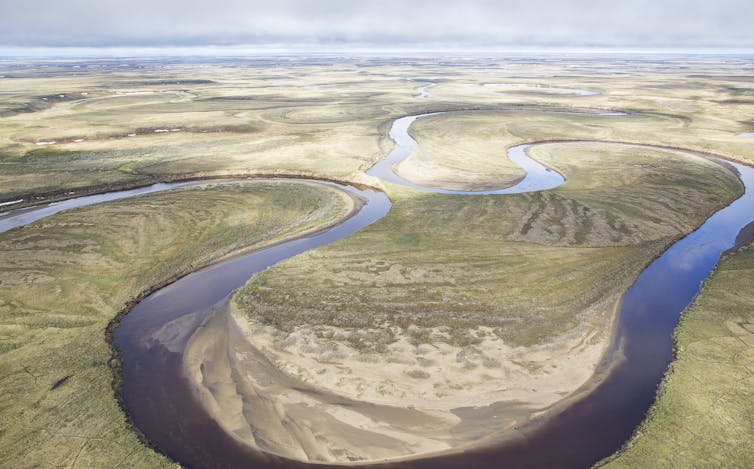










 Contact Contact 
 Webmail
Letters Webmail
Letters
 News Tips News Tips
 Copyright Info Copyright Info
 Archives Archives
Quick News
Search
 Alaska Alaska
 Ketchikan Ketchikan
 SE Alaska SE Alaska
Columns
- Articles
 Dave Kiffer Dave Kiffer
 Money Matters Money Matters
Historical
Ketchikan
 June Allen June Allen
 Dave
Kiffer Dave
Kiffer
 Louise
B. Harrington Louise
B. Harrington
Sports
 Ketchikan Links Ketchikan Links
Public Records
 FAA Accident Reports FAA Accident Reports
 NTSB
Accident Reports NTSB
Accident Reports
 Court Calendar Court Calendar
 Recent Filings & Case Dispositions Recent Filings & Case Dispositions
 Court Records Search Court Records Search
 Sex Offender Reg. Sex Offender Reg.
 Public Notices Public Notices
 Alaska Recall Alerts Alaska Recall Alerts
 Recalls.gov Recalls.gov
 AST Daily Dispatch AST Daily Dispatch
 KTN
Police Reports KTN
Police Reports
 Juneau Police Reports Juneau Police Reports
Weather,
Webcams
 Today's
Forecast Today's
Forecast
 KTN
Weather Data KTN
Weather Data
 AK
Weather Map AK
Weather Map
 AK Weathercams AK Weathercams
 AK Earthquakes AK Earthquakes

|

Monday
March 27, 2023

Seals
SitNews Front Page Photo By STEVE SPEIGHTS ©2023
To have your photo(s) featured on the front page,
email your photo(s) to editor@sitnews.us |
|
Ketchikan Historical: 'The example we want to follow'; Legendary bush pilot Herman Ludwigsen dies at 95 By DAVE KIFFER -
Herman Nels Ludwigsen packed a lot of action into his nine decade life. He was a bush pilot, a commercial fisherman and an Alaskan Hall of Fame trapper.

Herman Ludwigsen as 21-year-old pilot in 1948.
Photo courtesy Herman Ludwigsen |
Ludwigsen died in Ketchikan on February 14 at the age of 95.
Ludwigsen was born in Seattle on Nov. 20, 1927, the youngest of eight children of Nels and Amalie Ludwigsen. Nels was a boat builder who relocated the family to Ketchikan in 1938. He had grown up in Denmark and jumped ship in Seattle in the years before World War I.
As a young boy, Herman Ludwigsen remembered "falling in love."
"I was six or seven years old," Ludwigsen said in 2020. "I had to walk down past the apple trees on Commodore Way to see her. She was a grand old lady. You could see she had good structure and fine lines. She was a 1930s biplane."
His early years on the Seattle waterfront brought him in close proximity to the burgeoning Seattle aviation industry, especially the seaplanes he saw buzzing about. He knew early on that he wanted to eventually fly.
In 1938, the 10 family members piled into a 36-foot trolling boat that Nels built and headed north for "better opportunities." It took nearly two weeks to reach Ketchikan and Ludwigsen said the rough weather made them all sick.
The family eventually found a home along the Tongass Avenue waterfront as Nels and older brother Harry developed their boat building and repair businesses. Herman was more taken with the numerous air taxi businesses nearby.
As a boy, Herman was a “dock rat” for aviators like Jimmy Reinhart, Herb Munter and Ray Renshaw. He also sold newspapers, did deliveries for the nearby Golden Rhine Brewery, and helped unload halibut boats at Ketchikan Cold Storage.
He says he was plenty smart enough to be a good student but was more interested in fishing and hunting, and basketball.
His basketball prowess was important at Ketchikan High School and he led the then named Polar Bears to two state titles as a high scoring forward. He was also student body president, but he didn’t complete his senior year.
"I was fooling around in back (in class one day)," Ludwigsen said in 2021. "(the teacher) stood me up in class and said 'what did you come to school for?' and I said 'to play basketball.' She said 'get out.' Out the door I went, and I never came back."
Ludwigsen had already begun commercial fishing with his father and older brother Arnold and soon he had his own trolling boat which he fished during the war, primarily along the inner coast of Prince of Wales from Hadley down to Cape Chacon. After the war, he acquired a larger boat, the Don Carlos, and he fished that boat until 1950, when he joined the Army.
“The Army saved me,” he noted in 2020.
Ludwigsen had grown tired of commercial fishing by the late 1940s and was also concerned that the salmon runs were in steep decline. Like more than a few other local fishermen, he blamed the dozens of fish traps in the area, and he was more than happy to “rob” those traps when the opportunity arose. More than 70 years later, he still smiled when he talked about taking salmon from the cannery traps and then selling the same fish back to the canneries.
He said that he and his fishing partner Ed Allain spent a lot of time "outrunning the Pinkertons," the detectives that the canneries hired to chase down the pirates.
But Ludwigsen said he always had an eye skyward while fishing, wishing someday to make his living as a pilot. During World War II, he trained to fly with Pete Cessnun and Jim Webber.
When the Army called in 1950, Ludwigsen happily went ashore. He was posted in Western Alaska and spent most of his time working on aircraft in Bethel. It was there he met Anita Loeb, whose family owned a restaurant. They would be married for 70 years.
In 1952, his tour ended, and he joined the reserves. With the help of Anita’s father, he purchased and rehabbed a plane. Herman then flew it to Ketchikan. It didn’t have floats and Herman caused a bit of a stir when he used the South Tongass Highway (then just a narrow dirt road) near Mountain Point as his landing strip. Larry Erickson, Oral Freeman and others were his ground crew.
(See “A South Tongass Airport?” SITNEWS, June 22, 2020)
Ludwigsen put floats on his Piper Supercruiser and then spent the next few years working unofficially as a pilot, basically being available to take anyone anywhere, just not as an official commercial flight.
He also took part in several search and rescue missions.
Most famously he found the downed plane of Texas oil baron/aviator Ellis Hall. Hall and several family members disappeared after leaving Annette Island in 1953. The family and the oil company offered a $30,000 reward ($280,000 in 2023 dollars) and Ludwigsen found the crashed plane a month after it disappeared in the mainland mountains between Ketchikan and the Canadian border. Ludwigsen used some of the money for family purchases but shared a chunk with other pilots who engaged in the search, and also gave his brother Harry money to spruce up the Walker Field baseball park.
- More...
Monday - March 27, 2023
|
Alaska: 3 reasons the Willow Arctic oil drilling project was approved – it’s the latest battle in a long fight over Alaska’s North Slope; Several oil projects are active in the National Petroleum Reserve-Alaska. By SCOTT L. MONTGOMERY - For more than six decades, Alaska’s North Slope has been a focus of intense controversy over oil development and wilderness protection, with no end in sight. Willow field, a 600-million-barrel, US$8 billion oil project recently approved by the Biden administration – to the outrage of environmental and climate activists – is the latest chapter in that long saga.
To understand why President Joe Biden allowed the project, despite vowing “no more drilling on federal lands, period” during his campaign for president, some historical background is necessary, along with a closer look at the ways domestic and international fears are complicating any decision for or against future oil development on the North Slope.
More than just Willow
The Willow project lies within a vast, 23 million-acre area known as the National Petroleum Reserve-Alaska, or NPR-A. This was one of four such reserves set aside in the early 1900s to guarantee a supply of oil for the U.S. military. Though no production existed at the time in NPR-A, geologic information and surface seeps of oil suggested large resources across the North Slope.
Proof came with the 1968 discovery of the supergiant Prudhoe Bay field, which began producing oil in 1977. Exploratory programs in the NPR-A, however, found only small oil accumulations worthy of local uses.
Then, in the 2000s, new geologic understanding and advanced exploration technology led companies to lease portions of the reserve, and they soon made large fossil fuel discoveries. Because NPR-A is federal land, government approval is required for any development. To date, most have been approved. Willow is the latest.
Opposition to North Slope drilling from conservationists, environmental organizations and some Native communities, mainly in support of wilderness preservation, has been fierce since the opening of Prudhoe Bay and the construction of the Trans-Alaska Pipeline in the 1970s. In the wake of 1970s oil crises, opponents failed to stop development.
During the next four decades, controversy shifted east to the Arctic National Wildlife Refuge. Republican presidents and congressional leaders repeatedly attempted to open the refuge to drilling but were consistently stifled – until 2017. That year, the Trump administration opened it to leasing. Ironically, no companies were interested. Oil prices had fallen, risk was high and the reputational cost was large.
To the west of the refuge, however, a series of new discoveries in NPR-A and adjacent state lands were drawing attention as a major new oil play with multibillion-barrel potential. Oil prices had risen, and though they fell again in 2020, they have been mostly above $70 per barrel – high enough to encourage significant new development. - More...
Monday - March 27, 2023
Alaska: The State Intervenes in Federal Lawsuits that Challenge Willow Project and Opposes Effort to Stop Construction - The state of Alaska filed to intervene yesterday and today in lawsuits that challenge the recent federal approval of the Willow Project, an oil development, estimated to produce more than 600 million barrels over 30 years and is described as the largest project in size and scale to be developed on the North Slope in more than 20 years.
The State will oppose the related preliminary injunction motions on Willow. A U.S. District Court judge is expected to rule in April on whether to halt construction.
“Despite the smaller footprint of the project and the track record of safe and responsible energy development in Alaska, environmental groups still aren’t satisfied. This is a poster child for them, but it is jobs, infrastructure, and healthy communities for Alaskans. You see the Congressional Delegation, the Legislature and the State Administration coming together on this one. We all understand the importance of defending this project.” said Alaska Attorney General Treg Taylor.
If Willow proceeds and produces according to projections, up to $4 billion is estimated to go into a development impact mitigation fund for grants for Alaska residents living near the development.
The State filed March 23rd in U.S. District Court for Alaska to join the case with defendants ConocoPhillips Alaska, Inc, the North Slope Borough, Arctic Regional Slope Corporation (ASRC), and Kuukpik Corporation. The State serves the broader interests of the residents of the State as a sovereign landowner in the development of natural resources. - More..
Monday - March 27, 2023
|
|
Alaska: KIC and Tlingit & Haida Among 5 Selected for State-Tribal Education Compact Pilot Program Posted & Edited By MARY KAUFFMAN - U.S. Senator Lisa Murkowski (R-AK) recognized the selection of five Alaska Tribes by the Alaska Board of Education and Early Development to begin negotiation on a demonstration State-Tribal Education Compact (STEC) in Alaska. The five Tribes selected are:
- Inupiat Community of the Arctic Slope
- Ketchikan Indian Community
- King Island Native Community
- Knik Tribe
- Central Council of the Tlingit and Haida Indian Tribes
“The state-tribal education demonstration initiative is an innovative approach to improving educational opportunities and outcomes for K-12 Native students in Alaska,” said Senator Murkowski. “Empowering the five pilot Tribes to develop educational programs rooted in respect for Native culture and language is a local solution for reducing disparities and closing the achievement gap facing Native students. Tribal education compacting is yet another tool to further self-determination for tribes.”
Locally, Ketchikan Indian Community (KIC) was selected as one of five tribes to participate in the State Tribal Education Compact Demonstration Project. Established under Senate Bill 34, this will allow tribes to open new State Tribal Education Compact schools with their own curriculum, schedules, academic standards, and extracurricular activities.
Quoting a news release from KIC, as one of the initial tribes selected, KIC will be expanding upon a decade of experience developing culturally supportive curriculum and learning environments through their existing Tribal Scholars program in a partnership with the local school district.
Education for KIC’s Tribal youth is an ongoing priority for KIC’s Tribal Council. Resolution 22- 81 on State Tribal Education Compacting was unanimously adopted by the Council this past November and states, "The Tribe has prioritized education in its strategic plan to have a higher graduation rate and less of a gap in test scores, as well as better attendance rate for our Tribal members."
The KIC resolution also notes that "when we expand education beyond traditional, standard curriculum to include our heritage languages, arts, history, and subsistence lifestyle, we allow the Tribe to exercise our sovereign rights and to exercise our self-determination, to improve schools, and to increase educational attainment for all students."
Pleased by the success of KIC’s application, Education & Training Director Sonya Skan said, "This provides us the amazing opportunity of controlling the education of our Tribe’s students and making sure they receive a more culturally-supportive academic experience. Best of all, our school will be open to all local students, and that will extend the understanding of and respect for our Tribe’s traditional knowledge and values out into our community."
KIC will receive significant grant funding over the next handful of years, during which time they plan to build a new education facility on KIC’s property next to the University of Alaska Southeast campus and adjacent to Ketchikan High School. Planning for the academic standards, curriculum, and schedules is already underway as the KIC Education team is investigating the best practices of existing indigenous schools.
The Central Council of the Tlingit & Haida Indian Tribes of Alaska (Tlingit & Haida) is also pleased to be awarded funding under the State-Tribal Education Compacting Demonstration Tribal Partners Grant program.
SB 34 tasked the Alaska State Board of Education and Early Development to select and work with up to five tribal partners to develop a legislative report with recommendations relating to state-tribal education compacting and demonstration state-tribal education compact schools.
In December 2022, Tlingit & Haida’s Executive Council adopted a resolution to apply for the funding through the State of Alaska.
Discussions on state-tribal education compacting have been ongoing for decades in Alaska, but Alaska’s Education Challenge identified it as a strategic priority.
Under a state-tribal education compact, a tribe would have the local authority to operate and oversee K-12 schools. - More...
Monday - March 27, 2023
Alaska: Tornga Selected as New Marine Director for Alaska Marine Highway System - Craig Tornga has been appointed as the new Marine Director for the Alaska Marine Highway System (AMHS). His first day will be Monday, April 3.
Tornga has extensive experience both in the marine industry and in managing multifaceted organizations. He started his maritime career sailing aboard Crowley’s ocean going vessels, and spent over 20 years working his way up through the Crowley’s Marine Services Division. Since 2017, Tornga has served as the Senior Vice President for Kirby Offshore Marine in Houston, Texas.
“Craig Is going to do a great job leading the AMHS team,” said Ryan Anderson, Commissioner of the Alaska Department of Transportation & Public Facilities. “His experience, first as a mariner, then in managing complex marine operations, will be invaluable to the Marine Highway operations and staff.” - More...
Monday - March 27, 2023
Alaska: Alaska looks to lead the way in youth employment outcomes - On March 13, 2023, U.S. Department of Labor (DOL) announced they have selected a team from the State of Alaska to be one of nine teams from "communities" across the nation to participate in a five-month Youth Systems Building Academy.
Established in December 2022, and administered by DOL Employment and Training Administration, Youth Systems Building Academy was created to provide training and technical assistance to workforce systems, and their community partners to help them explore, design, test, implement and expand approaches to attract young workers and to support them once they join the workforce.
The Alaska "community" team members participating in the Academy is led by Director of Alaska Vocational and Technical Center (AVTEC) Cathy LeCompte, with partners from the Department of Labor and Workforce Development’s Alaska Workforce Investment Board, AVTEC, and the Division of Vocational Rehabilitation. Community partners include the Alaska Job Corps Center, Cook Inlet Tribal Council, and the Covey Academy at Covenant House Alaska.
"We are so honored to have been selected from over 50 applicants and will work hard in our role of conveners and facilitators to ensure the young Alaskans voices are at the table as we design this system that will support their goals and futures," said Director LeCompte. - More...
Monday - March 27, 2023
|
|
Washington: U. S. Senators Introduce Bipartisan Bill to Get Public Employees Full Social Security Benefits - U.S. Senators Lisa Murkowski (R-AK) joined Sherrod Brown (D-OH) and Susan Collins (R-ME) in reintroducing bipartisan legislation that would ensure public sector workers and their families can receive full Social Security benefits after two previous statutes reduced them. The Senators’ bill, the Social Security Fairness Act, would repeal the Windfall Elimination Provision (WEP) and the Government Pension Offset (GPO) from the Social Security Act.
“These Ohioans worked their whole lives teaching our children and keeping our communities safe – there’s no reason law enforcement officers and teachers shouldn’t be able to retire with their full Social Security benefits,” said Senator Brown. “Social Security is one of the bedrocks of economic security in this country, and everyone should be able to share in the benefits. This small fix will help these families have the peace of mind that their Social Security benefits will be there for them when they retire from a life of dedicated service to our communities.”
“Public servants from across the country have dedicated their professional careers to the service of their country, yet many face reduced retirement benefits due to the Windfall Elimination Provision and Government Pension Offset,” said Senator Collins. “I held the first Senate oversight hearing on this issue and have continuously worked to correct it. This important, bipartisan bill would eliminate these unfair provisions that have enormous financial implications for many public service employees, such as retired teachers and police officers. It would also give current public sector employees the peace of mind to know that they will be able to receive their full Social Security benefits when they reach retirement age.”
“I’ve long said Alaska’s public sector workers who educate our children, protect us from harm, and serve the public good deserve the Social Security benefits they’ve worked for and earned. Teachers, firefighters, police officers, local government workers, and other public servants are critical members of our communities—and this commonsense, bipartisan legislation that I’ve supported every Congress since I’ve been in the Senate will repeal unfair deductions to their benefits,” said Senator Lisa Murkowski. “We’re supporting Alaskans who have dedicated their lives to enhancing our communities and serving the public good.” - More...
Monday - March 27, 2023
Alaska: Alaska Senate Rules Committee Introduces Legislation to Fix Flaws in Alaska’s Oil Tax Structure - The Senate Rules Committee introduced legislation Friday to fix several flaws in Alaska’s oil tax structure. Senate Bill 114 would level the playing field by having all oil producers pay the same corporate income tax rate as corporations at 9.4%. This would only apply after the first $4 million in annual net income.
Senate Bill 114 will also reduce Alaska's per barrel oil tax credit system from $8 to $5 and cap the credit amount equal to their capital expenditures. When the legislature debated the current per-barrel credit structure in 2013, modeling focused on oil above $90, not on lower prices like we see today.
Lastly, the legislation establishes "ringfencing" on North Slope fields and changes the law so that producers can only apply their lease expenditures to those fields where the expenditure occurred. With this provision, a company would carry forward their lease expenditures until oil starts flowing. This does not result in a loss of revenue to producers and developers but shifts the time they apply for deductions to when oil starts flowing. - More...
Monday - March 27, 2023
Alaska: Bill Introduced to Reject 67% Pay Raises for Legislators -
Last week Senator Shelley Hughes (R-Palmer) introduced Senate Bill 111 disapproving recommendations of the State Officers Compensation Commission to raise legislators’ salaries by 67%.
The bill is co-sponsored by Senator Robb Myers (R-North Pole). The bill also offers an optional pay schedule for legislators for the current salary by allowing its disbursement over the first five months of the calendar year during the legislative session as an alternative to disbursement over twelve months. This provision was included in order to make it easier for Alaskans of working age to serve in the legislature.
Senator Hughes stated, “Not only is the Compensation Commission process flawed and fraught with conflict-of-interest issues due to legislators having the power to give themselves a raise by passively accepting the report, but such a large raise when we have a tremendous shortfall is unwarranted in this fiscal climate. We need to concentrate this session on putting the people’s fiscal house in order and making sure we start getting the most bang for our public buck when it comes to our schools and student learning.”- More..
Monday - March 27, 2023
Alaska: Legislation Introduced to Protect Workers Free Speech Rights; Senate Bill 109 prohibits mandatory workplace meetings to prevent union membership - Last week, Senator Löki Gale Tobin (D-Anchorage) introduced Senate Bill 109 – The Employee Free Speech Act. The bill clarifies the right of employees in Alaska to opt out of employer speech restrictions.
Senate Bill 109 seeks to prohibit so-called “captive audience meetings,” which are mandatory meetings held during work hours whose purpose is to discourage employees from joining a labor union. Currently, these meetings are only prohibited within 24 hours of a union election. Senate Bill 109 would also put limits on mandatory meetings whose primary purpose is to communicate an employer’s religious or political opinions. Nothing in Senate Bill 109 would limit an employer from hosting a meeting, only from making the meeting mandatory and punishing an employee for refusing to attend.
“Workers in Alaska should be free to exercise their right to unionize without the threat of coercion. In a time when unionization efforts are on the rise across the country, we must ensure that the rights of workers are upheld and protected. No employer should be able to host meetings to espouse their political and religious beliefs and require their employees to attend,” said Sen. Löki Gale Tobin. - More...
Monday - March 27, 2023
Alaska: Legislation Introduced Ensuring Financial Literacy Curriculum is Taught for Alaska High School Students - Senator Bill Wielechowski(D-Anchorage) introduced Senate Bill 99, which directs school districts to offer a financial literacy course for high school students. School districts will have the flexibility to choose the curriculum approved by the Department of Education and Early Development. Senate Bill 99 requires 14 instructional components, such as budget and money management, fraud and financial deception, federal income taxes, and postsecondary loan applications.
Many young Americans fall quickly into credit card debt, are more vulnerable to financial fraud through social media, and lack an overall understanding of retirement planning. According to Experian, on average, Alaskans have the highest credit card debt in the country at $8,026. According to a 2021 study by the Employee Benefit Research Institute (EBRI), young adults in 2019, ranging from age 25 to 36, are less likely to own a home and have lower net worth than the same age bracket studied in 2001. That same population studied in 2019 has an even larger financial disparity than those born between 1946 and 1964.
“There is a financial crisis in our country,” said Sen. Wielechowski. “By providing young Alaskans with tools to become more financially literate, it will not only improve their economic stability, but it will also benefit Alaska’s economy and reduce reliance on social programs funded and administered by the state.”- More...
Monday - March 27, 2023
|
|
Southeast Alaska: Southeast and Coastal Legislators Call for Immediate Federal Action on British Columbia Transboundary Mining - In a joint press conference held March 09th, Southeast and Coastal members of the Alaska House Coalition stood in unity with the Central Council of the Tlingit and Haida Indian Tribes, Sealaska, and Salmon Beyond Borders to call for immediate federal action on British Columbia’s (B.C.) ongoing transboundary mining.
There are over two dozen Canadian mines proposed or operating along the Taku, Stikine, and Unuk watersheds that connect B.C. and Southeast Alaska. These rivers are historically among the most productive wild salmon rivers on the entire west coast of North America, contributing nearly $50 million in economic activity, $34 million in direct spending, and almost $20 million in labor income towards Southeast Alaska’s annual multi-billion-dollar fishing and visitor industries.
Meanwhile, Canadian mines operate with inadequate regulations and bonding requirements, leaving Alaska downstream and forced to assume all of the potential threats to the health and productivity of the Taku, Stikine, and Unuk Rivers.
After the March 9th joint press conference, Representatives Dan Ortiz, Rebecca Himschoot, Sara Hannan, Andi Story, Louise Stutes, and Senator Jesse Kiehl sent a letter to Secretary of State Anthony Blinken requesting federal intervention in this important issue.
In the letter, legislators are asking the U.S. federal government to utilize their authority under the United States-Canada Boundary Waters Treaty of 1909 to create a binding international agreement.
“We have heard loud and clear from constituents that Alaskans need enforceable protections," said Rep. Dan Ortiz (NP-Ketchikan). "Over 100 Alaska Tribes, municipalities, commercial and sport fishing businesses and organizations, and thousands of Alaskans have written letters and passed resolutions asking for the Boundary Waters Treaty to be invoked. We want to join with these thousands of voices.” - More...
Monday - March 27, 2023
Southeast Alaska: As Pressure Builds on Canada, State Legislators and Representatives Urge B.C. to Include SEITC as Meaningful Participant in Mine Permitting Process - In joint letter addressed to British Columbia (B.C.) Premier, Alaska state legislators and representatives urge B.C. to consult with Southeast Alaska Indigenous Transboundary Commission (SEITC) and its member Tribes during the province's processes for permitting new mines: "The U.S. and Canadian governments and the Indigenous peoples on both sides of the border have a responsibility and opportunity to better manage these shared watersheds in a constructive and cooperative manner. We hope the B.C. government shares our conviction that this can only be accomplished with the Alaska Tribes of the SEITC as meaningful participants."
Implementation of the United Nations Declaration on the Rights of Indigenous Peoples (DRIPA), ratified by Canada in June of 2021, requires Canada to recognize the rights of the Southeast Tribes and their interests in territories that pre-date the border between the U.S. and Canada. Representative Sara Hannan said the letter is a reminder for the Premier that Alaska Tribes and their interests precede the Canada-United States border, and SEITC should have a seat at the table in development decisions in these watersheds.
Quoting a news release, SEITC has challenged Canada's failure to prevent human rights violations before the Inter-American Commission on Human Rights. While waiting on Canada's response, SEITC is building a strong case for Participating Indigenous Nation status for its member Tribes and is in direct engagement with B.C. "We have a clear path forward and our talks are beginning to get productive.", says SEITC Vice President and Tlingit and Haida's Executive Council 2nd Vice President, Rob Sanderson, Jr.
According toSEITC, B.C. mines are likely to release pollution that would seriously harm the health and viability of the salmon that spawn and rear in the Taku, Stikine, and Unuk River watersheds. Salmon is essential for the livelihoods and culture of local Indigenous peoples. Failing to prevent harm to these rivers constitutes a violation of the rights of the sovereign Tribal governments, their culture and means of subsistence.
"Salmon unites Tribes and First Nations on both sides of the border. As salmon people, it is our responsibility to preserve salmon for future generations, as our ancestors did for us.", said SEITC Treasurer and tribal leader, Trixie Bennett.
- More...
Monday - March 27, 2023
|
|
Alaska: Former Alaska State Trooper Convicted of Attempted Sexual Abuse of a Minor in the Second Degree - Former Alaska State Trooper Vance Peronto was convicted March 24, 2023 of one count of attempted abuse of a minor in the second degree. The trial lasted a little over two weeks, and the jury deliberated for approximately two and a half days before returning a guilty verdict. The jury was unable to reach a unanimous verdict on two counts of possession of child pornography. Superior Court Judge Andrew Peterson presided over the trial in Anchorage.
A sentencing date is forthcoming. At sentencing, Peronto will face between two and 12 years in custody. His mandatory minimum sentence, absent referral to a three-judge panel or mitigation, is four years with two years suspended, followed by five years of probation.
This case began when Alaska State Troopers, AST, was notified on April 26, 2018, that Peronto, a 16-year veteran of AST, may have had inappropriate contact with a minor. Investigators learned that on April 8, 2018, Peronto conducted a traffic stop of a 16-year-old female for driving without her headlights illuminated. No citation was issued. Peronto subsequently contacted the 16-year-old via social media and began establishing a social relationship.
AST Investigators obtained consent from the 16-year-old and her family to retrieve electronic evidence pertinent to the case. On April 29, 2018, Peronto attempted to rendezvous with the female at a hotel in Anchorage but was instead contacted by members of AST with the assistance of the Anchorage Police Department. - More...
Monday
- March 27, 2023
Alaska: EPA Toxic Release Inventory Misleads Public Says DEC Commissioner- The U.S. Environmental Protection Agency (EPA) has once again published its annual Toxics Release Inventory (TRI). The TRI catalogs the movement of chemicals that may be harmful to human health and the environment if handled improperly. Unfortunately, the TRI does not distinguish between permitted activities and illegal, harmful releases. Today, the Alaska Department of Environmental Conservation (DEC) calls on the EPA to develop a reporting system that accurately reflects the actual risks associated with different types of releases.
“By not specifying the manner of release, the TRI mischaracterizes the harm to the public and frankly undermines the critical work regulators do,” said Jason Brune, Alaska DEC Commissioner. “EPA’s approach does more to fear monger than to alert the public of legitimate risks.”
According to the TRI data for 2021, Alaska’s metal mining industry accounts for 99.8% of the “releases” in Alaska. Out of that, approximately 99.56% of the reported “releases” from Alaska mines reflects permitted and regulated activities – largely moving material to regulated treatment or onsite waste storage areas. The TRI requires mining operations to file reports of the naturally occurring trace minerals in excavated overburden, spent rock, and tailings without acknowledging which of these materials were transferred to state-permitted, engineered, and monitored sites. The TRI assumes that these materials cause environmental harm, when in fact they do not — especially since the materials are often contained in large rocks.
“Moving rocks around from one pile to another at a permitted mine, according to EPA’s TRI report, is far worse than the recent train derailment and associated release of hazardous materials that has impacted thousands of people and devastated the environment in Ohio,” said Brune. “Because of this, EPA once again demonizes the very industries that are vital to the Biden Administration’s goal to decarbonize our nation, which requires increasing domestic production of critical and strategic minerals.” - More...
Monday - March 27, 2023
Alaska: Alaska Marine Highway & Troopers Renew Agreement for Protection on Ferries; Increased presence on ferries will provide extra security for Alaskans. - Alaskans will see an increased law enforcement presence when traveling the Alaska State Ferries this summer with the renewal of the Alaska Marine Highway System (AMHS) Ride-Along program. The program allows AMHS to provide space-available travel aboard its vessels, free of charge, in exchange for law enforcement presence and services by State Troopers.
Under this renewed agreement, Alaska Department of Public Safety (DPS),and Alaska State Troopers (AST) are eligible for complimentary travel when traveling for personal reasons, on a space available basis. This increases protection of life and property aboard AMHS vessels with a more frequent, visible AST presence aboard ships.
“We’re increasing protections for Alaskans in a variety of ways,” said Ryan Anderson, Commissioner of Alaska Department of Transportation & Public Facilities (DOT&PF). “In 2022, we renewed our support of the drug enforcement K-9 unit in Bellingham, started participating in anti-human trafficking measures, and in 2023, we are reviving the Ride-Along program that benefits both AMHS and AST.” - More...
Monday - March 27, 2023
|
DAVE KIFFER: Bulletin: There are indeed too many hours in the day! - When one retires, one certainly has more time with which to do things.
Like sleep in, get up, eat breakfast at noon and take a nap.
Of course, I jest.
I usually eat breakfast at 1 pm these days.
Unfortunately, napping all day long comes with its own issues. I'm not a cat, therefore I really can't quite feel comfortable sleeping 18 hours a day. I want to. I really, really do. I want to sleep away three quarters of the day. I. Just. Can't. I mean if I only spend six hours a day monitoring Facebook and Twitter. I will totally lose touch with REALITY. And that is something I just cannot bear.
Speaking of sleeping all day, my cats certainly seem to be enjoying my new work status. They really do rock out when "Daddy" spends most of the day in bed. What they don't like is when I actually putter around the house trying to get things done. They prefer a quiet a house, so they can get their winks in. When I am puttering, they sit there and glare through tired eyes as if to say "don't you have somewhere to go." - More...
Monday - March 27, 2023
FINANCIAL FOCUS: What goes into a retirement ‘paycheck’? Provided By BEN EDWARDS, AAMS® - During your working years, you generally know how much money you’re bringing in, so you can budget accordingly. But once you’re retired, it’s a different story. However, with some diligence, you can put together a “paycheck” that can help you meet your income needs.
Where will this paycheck come from? Social Security benefits should replace about 40% of one’s pre-retirement earnings, according to the Social Security Administration, but this figure varies widely based on an individual’s circumstances. Typically, the higher your income before you retire, the lower the percentage will be replaced by Social Security. Private pensions have become much rarer in recent decades, though you might receive one if you worked for a government agency or a large company. But in any case, to fill out your retirement paycheck, you may need to draw heavily on your investment portfolio.
Your portfolio can provide you with income in these ways: - More...
Monday - March 27, 2023 |
POLITICAL CARTOONS

Political Cartoon: Tik Tok Ban
by Dave Whamond©2023, Canada, PoliticalCartoons.com
Distributed to subscribers for publication by CagleCartoons.com

Political Cartoon: Senate to Repeal 2002 Military Force Authorization
by R.J. Matson©2023, CQ Roll Call
Distributed to subscribers for publication by CagleCartoons.com

Political Cartoon: Fed Rate Hikes
by Rick McKee©2023, CagleCartoons.com
Distributed to subscribers for publication by CagleCartoons.com

Political Cartoon: March Madness
by Christopher Weyant©2023, The Boston Globe, MA
Distributed to subscribers for publication by CagleCartoons.com

Political Cartoon: Evolving AI
by John Darkow©2023, Columbia Missourian
Distributed to subscribers for publication by CagleCartoons.com

Political Cartoon: On The Rocks
by Rivers©2023, CagleCartoons.com
Distributed to subscribers for publication by CagleCartoons.com |
Student-centered funding could fix Alaska’s education outcomes By Sarah Montalbano - Total spending per Alaska K-12 student was more than $18,000 in 2020 — 35% more than the national average, and that doesn’t count millions of dollars in COVID-19 relief and some other related funds.
That might be alright if the state was seeing dramatic improvement in educational outcomes; after all, a decent education doesn’t necessarily come cheap. But we’re not getting the outcomes we’re paying for: Our state is at the bottom of the nation in reading and math. Increasing education spending without demanding improvements in outcomes would be a mistake.
Alaska’s fourth graders were 49th nationwide in reading on the 2022 National Assessment of Educational Progress, or NAEP. Fourth graders are 15 months behind the national average in reading and only one in four are reading at grade level. Mathematics is a similar story: Alaskan fourth graders have lost six months of learning since the 2019 NAEP and are a year behind the national average.
It’s tempting to blame this situation on pandemic school closures, and while those certainly didn’t help, the situation has been dismal for a long time. Alaska has ranked within the bottom 10 states on fourth-grade reading since 2003.
Increased spending is being treated as a cure-all for Alaska’s education system. The Alaska Association of School Boards, or AASB, is pressing the Legislature to raise the base student allocation, aka BSA, by at least $860 per student. The Senate Education Committee has introduced a bill to increase the BSA from $5,960 to $6,960. This $1,000 increase would be multiplied by a district’s average daily membership and weighted for students with special needs and students in rural areas. The Legislative Budget and Audit Committee estimates a total increase of $257 million in state funding in 2024 if the BSA were raised by $1,000.
Throwing more money at Alaska’s dismal educational outcomes sounds nice until one considers that increases in funding are often funneled into administrative and support staff, not teachers. Alaska’s expenditures on education rose by almost one-third between 2002 and 2020 after adjusting for inflation. Revenues from federal sources increased by 7% and local sources increased by 12% — while state revenues increased by 50%.
Where did that money go? It wasn’t to teachers in the classroom: Per-pupil spending on instructional salaries increased by a minuscule 1% between 2002 and 2020. The number of teaching staff declined by about 7% from 2002 to 2019. At the same time, per-pupil spending on school and general administrator salaries increased by 42% and 18%, respectively. In line with this increase, the number of non-teachers increased by 5% statewide from 2002 to 2019. - More...
Monday - March 27, 2023
Environmental Emperors With No Clothes. By Ray Metcalfe - Just before President Biden approved the Willow Project, a couple of environmentalists and an oil industry representative debated the pros and cons of the project on KSKA Public Radio.
The environmentalists complained that the production and combustion of all that oil would release about 239 million metric tons of climate pollution over 30 years. While true, here is the thing: According to a Greenpeace Canada publication, published 17 May, 2021, "The amount of climate-polluting greenhouse gases emitted per barrel of Canada’s Tar Sands oil can be 30% higher than conventional oil." (310 million metric tons for the same amount over time.) Willow is low sulfur light conventional oil. Bottom line: -- Oil remaining in the Canadian tar sands will never run out. Canadian tar sand oil will fill any market demand we don’t fill with lighter oil. Weaning ourselves off of our fossil fuel addiction is going to take a while. Until then, we are going to burn oil from somewhere. Far better we burn more Willow light and less Canadian Tar. The environmentalists know that part, but they didn’t bother to mention it. - More...
Monday - March 27, 2023
 |
Alaska Municipal League Legislative Report By Grant Echohawk and Austin Otos - Each year the Ketchikan Borough Lobbyist schedules meetings for the Ketchikan Delegation during the Legislative Session at the Capitol in Juneau. In recent years, the advocacy meetings have been scheduled to coincide during the week of the Alaska Municipal League (AML) Legislative Meeting. This yearly event is reserved for municipal governments to advocate to our state legislature for projects and issue that impact our local community. Ketchikan’s delegation consisted of: KGB Mayor Rodney Dial, City of Ketchikan Mayor Dave Kiffer, City Council Member Lallette Kistler, KGB Assembly Member Grant Echohawk, KGB Assembly Member Austin Otos, City Manager Delilah Walsh, and KGB Manager Ruben Duran. The delegation spent a considerable amount of time meeting with elected officials from around the state advocating for Ketchikan’s priority issues that were adopted by our three governing bodies. These issues included: increasing the state education formula for school districts known as the Base Student Allocation (BSA), meeting with Alaska Department of Transportation (AKDOT) officials on major infrastructure projects at the Airport and revamping of the Tongass highway in the downtown corridor, and transfer of green space land owned by the Department of Natural Resources (DNR) to the Ketchikan Gateway Borough for housing developments. Additionally, we listened to presentations on upgrading ports to allow for cruise ships to use shore power, municipal and school district access to the state health care system, and the Alaska Department of Public Safety replacing a large vessel for the Alaska State Troopers. If this project goes through, it is our intent to advocate for the public safety boat to be built in Ketchikan at the Vigor Shipyard. - More...
Monday - March 27, 2023
 |
An accurate portrayal of parental rights isn’t controversial By Alaska Governor Michael Dunleavy - When presented accurately, the rights of parents to be involved and informed about what their children are being taught in school should not be controversial.
For mothers and fathers, the question is simple: Should you be the ones who decide what is best for your child and your family’s values? Or should decisions about what is best for your child be left to others?
Affirming and defining parental rights is a matter of respect for the relationship between parent and child that is unlike any other; it’s the relationship that makes up the essence of family.
This relationship shouldn’t be infringed upon, and protecting this relationship shouldn’t be a partisan issue.
Unfortunately, some critics and media sources are attempting to mislead the public about the parental rights legislation I introduced on March 8.
Much of the criticism of this legislation hasn’t just been wrong; it’s been deliberately inflammatory to create responses based on emotions rather than facts and to prevent a fair hearing of the substance in the Legislature.
Among these claims are that the bill will enable child abuse and sexual abuse, that it is targeting certain people, or that it limits their rights.
None of these claims about this bill are accurate.
To be clear, this legislation does not repeal any portion of our laws regarding duty to report suspicions of physical or sexual abuse; nor does it repeal our statutes requiring age-appropriate sexual abuse prevention curriculum for students from kindergarten through graduation.
Not only does it preserve these protections for our most vulnerable, but it also provides for a school employee to withhold information from a parent if there is a reasonable belief that disclosure would result in abuse or neglect.
These provisions of the bill recognize that not every parent lives up to their responsibilities, and each one of those instances is tragic. The solution, however, is not to deny parents their rights by arguing that every parent is a potential abuser who can’t be trusted with information about their child’s health and education. - More...
Monday - March 27, 2023
Email your opinions and letters for publication to editor@sitnews.us
|
Articles &
photographs that appear in SitNews may be protected by copyright
and may not be reprinted or redistributed without written permission
from and payment of required fees to the proper sources.
E-mail your news &
photos to editor@sitnews.us
Photographers choosing to submit photographs for publication to SitNews are in doing so, granting their permission for publication and for archiving. SitNews does not sell photographs. All requests for purchasing a photograph will be emailed to the photographer.
|
|











|
|
![]() Contact
Contact ![]()
![]() Webmail
Letters
Webmail
Letters![]()
![]() News Tips
News Tips![]()
![]() Copyright Info
Copyright Info![]() Archives
Archives![]() Alaska
Alaska![]() Ketchikan
Ketchikan![]() SE Alaska
SE Alaska![]() Dave Kiffer
Dave Kiffer![]() Money Matters
Money Matters ![]() June Allen
June Allen![]() Dave
Kiffer
Dave
Kiffer![]() Louise
B. Harrington
Louise
B. Harrington ![]() Ketchikan Links
Ketchikan Links![]() FAA Accident Reports
FAA Accident Reports ![]() NTSB
Accident Reports
NTSB
Accident Reports![]() Court Calendar
Court Calendar![]() Recent Filings & Case Dispositions
Recent Filings & Case Dispositions ![]() Court Records Search
Court Records Search![]() Sex Offender Reg.
Sex Offender Reg.![]() Public Notices
Public Notices![]() Alaska Recall Alerts
Alaska Recall Alerts![]() Recalls.gov
Recalls.gov![]() AST Daily Dispatch
AST Daily Dispatch![]() KTN
Police Reports
KTN
Police Reports![]() Juneau Police Reports
Juneau Police Reports ![]() Today's
Forecast
Today's
Forecast![]() KTN
Weather Data
KTN
Weather Data![]() AK
Weather Map
AK
Weather Map![]() AK Weathercams
AK Weathercams![]() AK Earthquakes
AK Earthquakes



































